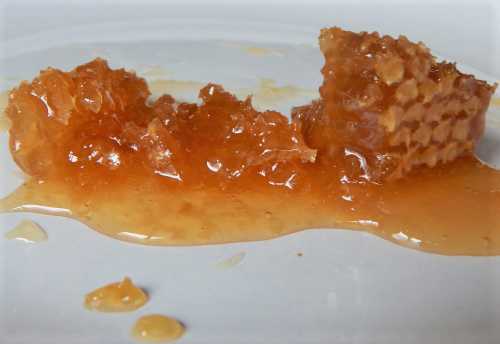Manuka Honey And Acne
On another page I outline the use of manuka honey in the treatment of MRSA. Another interesting suggested use for manuka honey is in the treatment of acne.
There are two reasons for this:
- firstly it
has been shown that a bacterium (Propionibacterium
acnes – or P. acnes for short)
plays a part in the inflammatory process that leads to the symptoms of acne;
- secondly it has been shown that manuka honey has antimicrobial properties
(thought by some researchers to be caused by a component of manuka honey called
methylglyoxal, although this is disputed by others).
Manuka honey and acne - is there any evidence?
But anyway, manuka honey's proven efficacy against certain bacteria raises two questions:
- does manuka honey have antibacterial properties against acne - P. acnes ; and if so,
- does this help reduce acne symptoms?
However, before we go any further, I think it's wise to mention that if you are thinking of buying manuka honey, ensure you are buying the real thing, and not an expensive fake.
What about Kanuka honey?
As an aside, there is another type of honey that also originates in New Zealand, called kanuka honey. This comes from bees that feed exclusively on a similar plant – the kanuka bush (Kunzea ericoides).
Kanuka honey has also been shown to have anti-microbial qualities, although it seems that this may be due to the high hydrogen peroxide content, and when peroxide is removed from kanuka honey, the antimicrobial capabilities are significantly reduced.
Studies: Manuka Honey & Acne;
Kanuka Honey & Acne
So – what studies have been done looking at manuka honey in acne (and
kanuka, for that matter)? Actually, despite the promising results against MRSA, I have found few actual studies that examine the use of honey in the treatment of acne! That's despite a number of studies investigating manuka honey for use in wound care.
But what I have found is as follows:
Wu; 2011:
Antimicrobial effect of Manuka honey and Kanuka honey alone and in combination with the bioactives against the growth of Propionibacterium acnes ATCC 6919 : a thesis submitted in partial fulfilment of the requirements for the degree of Master of Food Technology, Massey University, Albany, New Zealand
In this master’s degree thesis (1), Wu showed that manuka honey does have some effect against P. acnes, but that this seemed to be enhanced by certain bioactive agents in the creams used: manuka tree essential oil; and green tea extract.
The study states:
Conclusion:
Manuka honey exhibited antibacterial activity against the growth of the P. acnes. The antibacterial potency of the honey was significantly enhanced by the presence of bioactives in the emulsion cream.
Please note, this was an in vitro study, so it doesn’t
demonstrate any effect on symptoms in humans.
Would I be prepared to try it? Yes, because I think it looks promising. Furthermore, some people certainly rate such products highly: this one, for example, contains Tea Tree Oil.
However, I think ideally, we need more studies looking at the effects of pure, medical grade manuka honey on acne, without other active ingredients.
Semprini et al; 2016
Randomised controlled trial of topical kanuka honey for the treatment of acne
A study by Semprini et al (2) published in the British Medical Journal (BMJ) in 2016 examined the effect of kanuka honey on acne.
All the patients (136 patients with acne vulgaris) in the study used an antibacterial soap twice daily for 12 weeks, while half the patients also applied a medical grade kanuka honey after washing with the soap.
The results were a little disappointing, with only 7.6% of the patients in the honey group showing improvement (this compared to only 1 patient in the control group showing any improvement), leading the investigators to conclude that addition of medical grade kanuka honey does not add any advantage in the treatment of acne over current treatments.
The study states:
Conclusions:
This randomised controlled trial did not
find evidence that addition of medical-grade kanuka honey in combination
with 10% glycerine to standard antibacterial soap treatment is more
effective than the use of antibacterial soap alone in the treatment of
acne.
Comment
Though I think the initial evidence (combined with the many positive reviews I see) for the effects of manuka honey on acne shows potential, I would like to see more clinical evidence and quality studies. Certainly in many countries, real clinical evidence on actual patients/persons with acne, would be absolutely necessary in order for a product to be taken up by ethically-minded health care professionals. Certainly in the UK, even in vitro studies would be insufficient to gain take up by the NHS.
If you are aware of any new studies, or I have missed any, I'd be interested to see them and you can let me know via my contact form.
References:
Copy and paste the assocaited links into your browser to see the studies
(1). http://muir.massey.ac.nz/handle/10179/2997
(2). http://bmjopen.bmj.com/content/6/2/e009448
